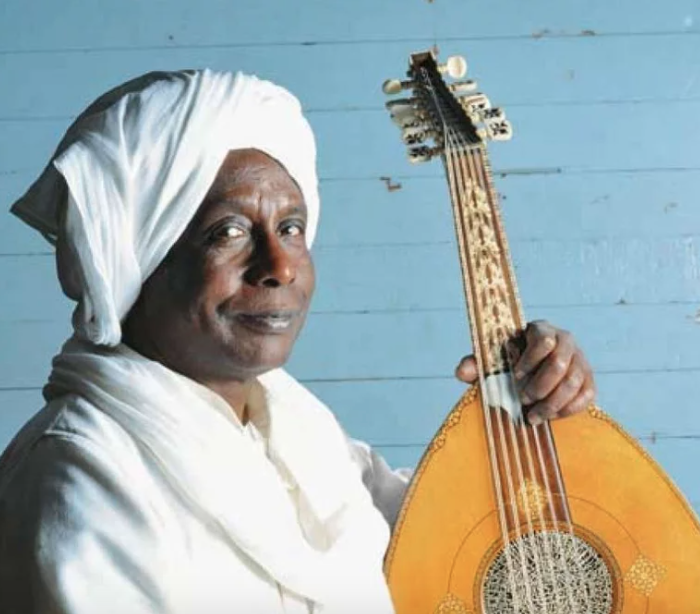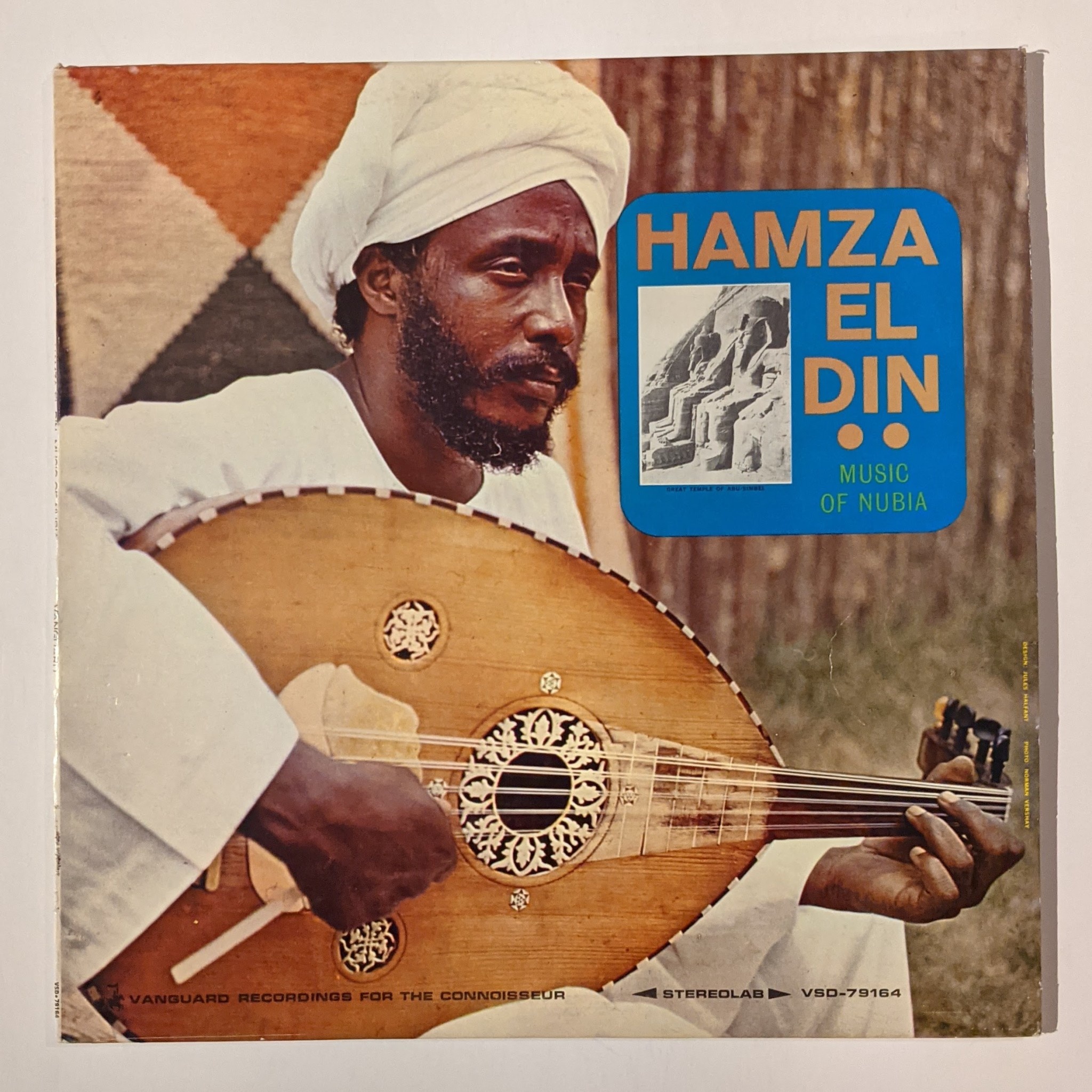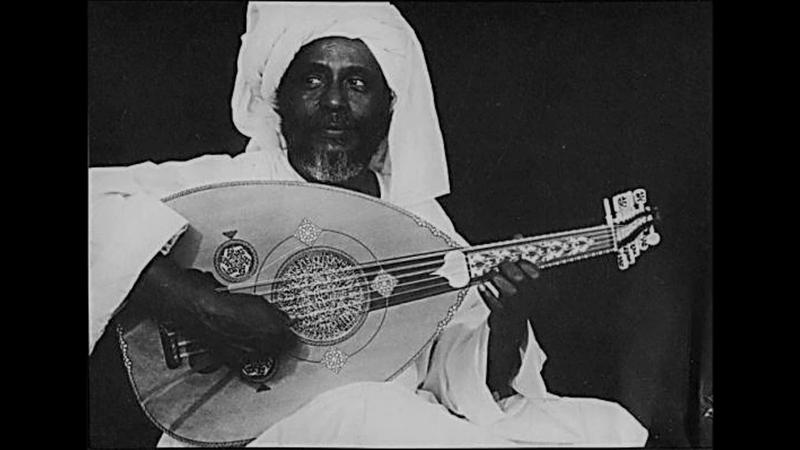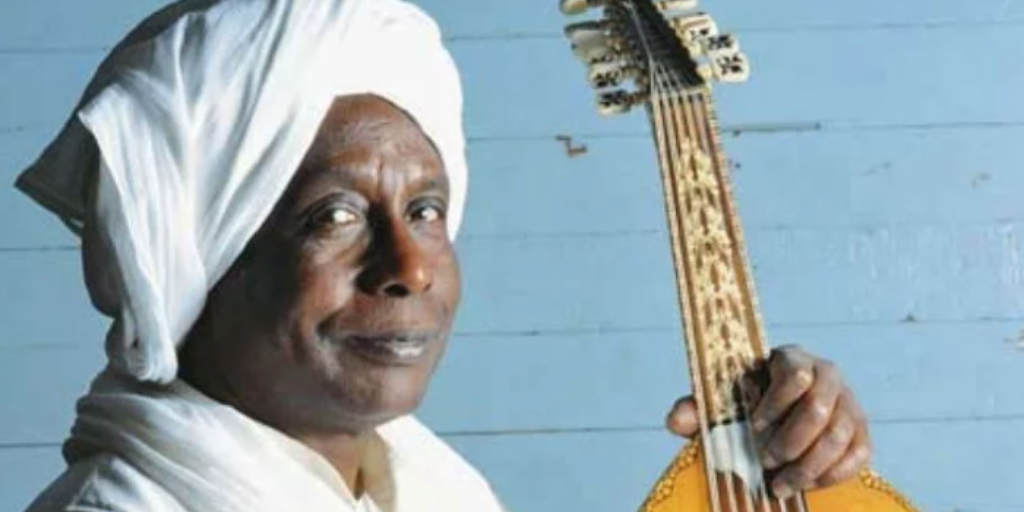
Who could have guessed that a national railroad employee’s music would captivate audiences across the globe, from Egypt to Japan? Such is the beauty of talents born in Egypt; their stories inspire feelings that anything is possible if a true desire to shine exists.
The late Nubian musician Hamza El Din is one of those stories.
Born in Nubia in 1929, El Din’s passion for music began serving a higher purpose after the Aswan High Dam flooded a large portion of ancient Nubia, which forced his family to leave his hometown of Toshka and move to Cairo.
This consequently compelled him to preserve Nubian culture through his talent. He did so by playing the oud (a 12-string instrument), which wasn’t traditionally used for Nubian music; however, he had felt that the oud had a “Nubian accent.”
In his pursuit of preserving Nubian culture, he travelled through the villages of Egypt on a donkey to gather songs from his homeland and studied Arabic music at the King Fouad Institute for Middle Eastern Music and the Ibrahim Shafiq Institute of Music. He also studied Western music and classical guitar in Rome with a grant from the government of Italy.
This was where he met an American student who passed a tape of his music to a friend. This series of fortunate events led to the recording of his album, titled Music of Nubia, along with his performance at the Newport Folk Festival.

His endeavor to study both Eastern and Western types of music caused his sound to form a fusion of cultures. He also performed in a cross-cultural jamming session during the 1978 Grateful Dead concert in Egypt, which he helped arrange. Unfortunately, according to one of the concert’s attendees who reached out to Egyptian Streets, El Din was dismayed by the audience’s loud and disruptive behavior during his set.
He was, however, good friends with the band members, and their percussionist Mickey Hart produced his Eclipse album.
El Din’s music career was characterized by its diversity and appeal among different audiences; he performed at international festivals in Edinburgh and Los Angeles, among many others, and his music was featured in several international ballets and movie soundtracks.
Transferring his knowledge and experience (and awareness of the Nubian culture) to young minds, El Din taught ethnomusicology in Ohio and Texas. He was much beloved by his students, with a unique teaching style described as “anything but formal” by former student and friend Joseph Rowe.
“You never knew what he might talk about next. One day he would be chalking out modes and musical terms on the blackboard. Another day he would decide to spend the whole class period telling us stories about village life in Nubia, before the Deluge: the cultural and ecological catastrophe of the Aswan Dam,” Rowe recalls on his website.

A grant from the Japan Foundation resulted in him moving to Tokyo, where he worked on a comparative study of the oud and the biwa, a Japanese lute. There, his biography was published in Japanese. It was also where he met his wife, who took on the Nubian name of “Nabra.” In Arabic, Nabra translates to “tone.”
El Din died in California in 2006 at the age of 76, and his funeral is said to have been attended by around 1,500 of his fans and friends.
Looking back, his mission of preserving Nubian culture was accomplished; his Nubian music legacy lives on to this day through 14 solo albums, and he is fondly remembered by students and friends alike.
El Din will forever remain a true treasure to his hometown of Nubia, and a prime example of the wonderful talents hidden across every corner in Egypt.






Comments (0)